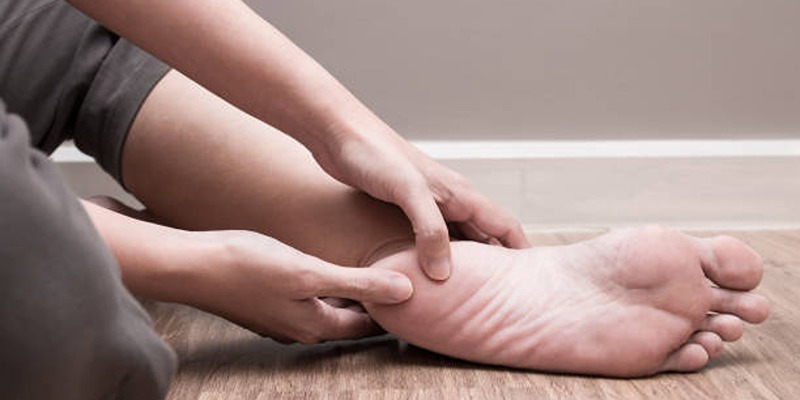Improving both your financial health and physical fitness may seem challenging, but by establishing consistent routines, you can make steady progress in both areas. Small, actionable habits can lead to significant long-term results. This guide introduces ten practical routines designed to help you achieve greater stability in finances and enhance your overall fitness.
1. Kickstart Your Day with a Morning Walk and Financial Check-In

Your day starts on a positive note with thirty minutes of brisk walking which builds heart health and metabolic functions and improves mental acuity. Walking at a light speed during the morning provides your body with increased energy levels and mental clarity for the upcoming day. Make use of your daily walk by conducting a financial check-in session that takes no longer than five minutes to review spending and schedule payments and establish modest financial targets.
Why It Works:
- Improves mood and circulation
- Promotes early financial mindfulness
- Encourages healthy spending habits
During your post-walk stretch, use a budgeting app to get a quick snapshot of your accounts and finances.
2. Combine Meal Prep and Budget Planning for a Productive Start to the Week
Prepping your meals for the week is a simple yet powerful way to make healthier food choices while cutting down on unnecessary expenses. Pairing this habit with setting a weekly budget helps you stay on top of both your health and financial goals.
Key Benefits:
- Promotes healthier eating by managing calorie intake and reducing impulsive food purchases
- Saves money by curbing overspending on takeout and snacks
- Encourages a more intentional and organized lifestyle
Dedicate one day each week—like Sunday or Monday morning—to plan your meals, do your grocery shopping, and set clear spending limits for food, entertainment, and other essentials. This routine streamlines your week and keeps you focused on what truly matters.
3. Incorporate Daily Bodyweight Exercises and Expense Tracking
Dedicate just 10 to 15 minutes each day to bodyweight exercises like squats, push-ups, or planks. These simple yet effective moves require no equipment and can be done from the comfort of your home. During rest breaks, take a moment to log your expenses from the previous day.
How It Works:
- Builds strength and improves endurance over time
- Promotes consistent financial awareness
- Eliminates the need for costly gym memberships or equipment
Use a single journal to track both your workout reps and daily expenses—it’s an easy and efficient way to stay organized and on top of your goals.
4. Embrace a Minimalist Morning Routine
Streamline your mornings to reduce decision fatigue and start the day with clarity. Opt for simple breakfasts, a capsule wardrobe, and a focused to-do list. Extend this minimalist mindset to your finances—cancel unused subscriptions, consolidate bank accounts, and remove outdated credit cards.
Key Benefits:
- Saves time and mental energy
- Cuts financial clutter and unnecessary expenses
- Establishes a structured, stress-free start to the day
Incorporate a monthly “subscription audit” into your routine—do it alongside decluttering your closet or workspace for maximum impact.
5. Join a Free Community Fitness Group and Accountability Circle
Take advantage of free fitness classes or walking groups often offered by local parks and recreation centers. Similarly, community libraries and online forums frequently host budgeting workshops and personal finance clubs. Engaging with like-minded individuals in these areas can boost your motivation and keep you on track.
Why It Works:
- Builds a strong support network and fosters commitment
- Combats feelings of isolation related to health or finances
- Turns self-improvement into a more enjoyable journey
Commit to attending one community session each week and connect with a financial accountability partner once a month.
6. Swap Screen Time for Reading on Fitness and Finance
Cutting back on unnecessary screen time—especially scrolling through social media or binge-watching TV—can significantly boost your mental health and productivity. Instead of 30 minutes of screen time each evening, try diving into a chapter from a book focused on personal finance or physical wellness.
Why It’s Worth It:
- Enhances sleep quality and reduces anxiety
- Builds knowledge to support long-term goals
- Replaces passive habits with purposeful, growth-focused ones
Keep a curated list of highly-rated books on topics like budgeting, investing, and nutrition, and aim to finish one each month.
7. Turn Walks into Financial Learning Opportunities
Transform your daily walks into a productive blend of exercise and education by tuning into financial podcasts. Instead of scrolling through your phone or watching videos while working out, use this time to enhance both your physical fitness and financial knowledge.
Why It Works:
- Combines purposeful multitasking with personal growth
- Reinforces financial habits through consistent exposure
- Supports both cardiovascular health and cognitive development
Curate a playlist of your five favorite finance podcasts and schedule regular walks to make the most of your time.
8. Adopt the “20-20-20” Rule: Prioritize Fitness, Finances, and Growth
Dedicate just one hour a day to meaningful progress by dividing it into three focused, 20-minute segments:
- 20 minutes of physical activity (e.g., stretching, walking, yoga)
- 20 minutes to review savings goals or plan your expenses
- 20 minutes to learn a new skill that enhances your income or overall well-being
This simple yet effective strategy prevents burnout while driving consistent progress in key areas of your life.
Why it works:
- Promotes balance between mental, physical, and financial growth
- Establishes a daily routine with clear, measurable results
- Reinforces the value of time as your most important resource
Use a calendar or productivity app to track this routine over 30 days for lasting consistency and impact.
9. Batch Cook Healthy Meals and Consolidate Bill Payments
Streamline your routine and reduce decision fatigue by batching key tasks like meal prep and bill payments. Preparing healthy meals in advance—think stir-fries, roasted vegetables, and lean proteins—saves time and ensures nutritious options are always on hand. Similarly, setting aside time to pay all your recurring bills at once helps you stay organized and avoid last-minute hassles.
Benefits:
- Promotes healthier eating habits and financial discipline
- Minimizes repeated decision-making
- Improves weekly time management
Dedicate one day at the beginning of the month to batch cook your meals and handle bill payments in a single session.
10. Reflect Weekly with a Journal and Financial Snapshot

Dedicate 15–20 minutes each weekend to reflect on your week’s progress in fitness and finances. Use this time to journal about challenges, achievements, and areas for improvement. Track key metrics like weight, step count, or body measurements, and review your financial data—whether it’s spending, savings, or debt reduction.
Why It Matters:
- Encourages long-term consistency
- Enhances emotional and financial awareness
- Fosters mindful, informed decision-making
Designate two journal pages each week—one for physical health insights and the other for financial tracking—to stay organized and focused.
Conclusion:
Achieving success in both your finances and fitness comes down to building sustainable routines, not making drastic changes. By aligning your physical habits with financial ones, the daily actions you take can create a powerful compounding effect over time. The key is consistency, not perfection. Whether it’s walking while listening to investment tips, meal prepping to save money, or journaling your steps alongside your spending, these integrated habits foster a lifestyle where wellness and wealth go hand in hand, reinforcing each other for long-term success.












